The bird next door: the time an Oakland turkey rose to captivate the world
The wild turkey of Oakland's Morcom Rose Garden became world famous for being beautiful, quirky, rather hostile, and definitely insane — not unlike Oakland itself.
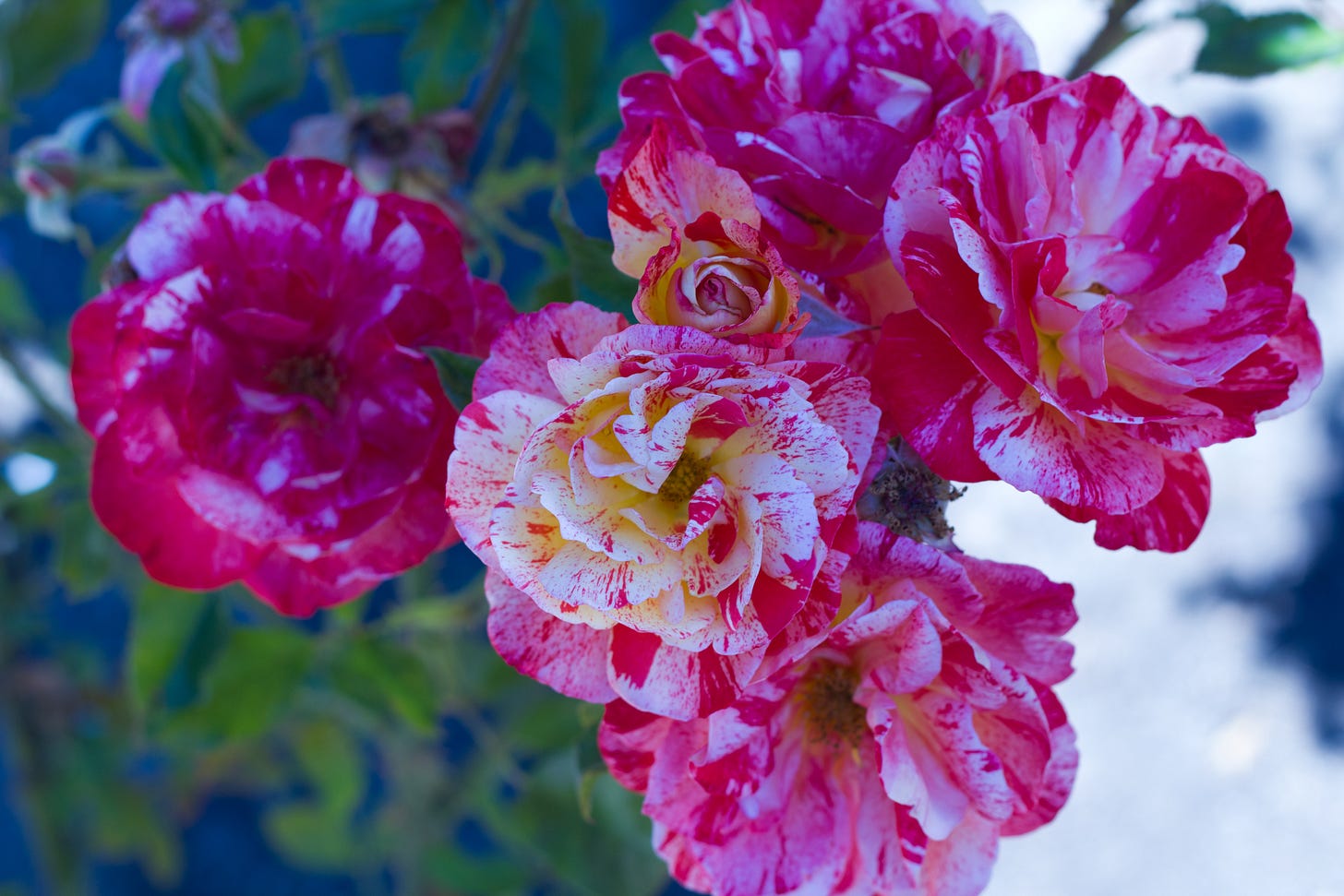
Young, wild and free: hardened by life in the mean streets of Oakland
To fully grasp this towering tale, one first must understand that this was no ordinary bird. This turkey was not pampered, nor was it plumped up by generations of careful selective breeding and cutting-edge veterinary care. And it certainly was neither docile nor destined to be stuffed and served on a dish. No, this was a wild turkey; an urban turkey; a street turkey.
Toughened by a hardscrabble existence scratching for insects in a scrappy botanical garden known for its heritage roses, this particular wild turkey was well-regarded as one of Oakland’s many quirky, lovable local characters.
Before the pandemic, the quirky turkey was known to lurk in the bush at the stately, slightly shabby Morcom Rose Garden, where it would pop out at random moments and approach startlingly close to humans.
This behavior was perhaps a little too bold and fearless for a bird that most humans think of as lunch meat. But on the whole, its antics were mostly harmless and disarmingly comical. People would take selfies with this turkey.
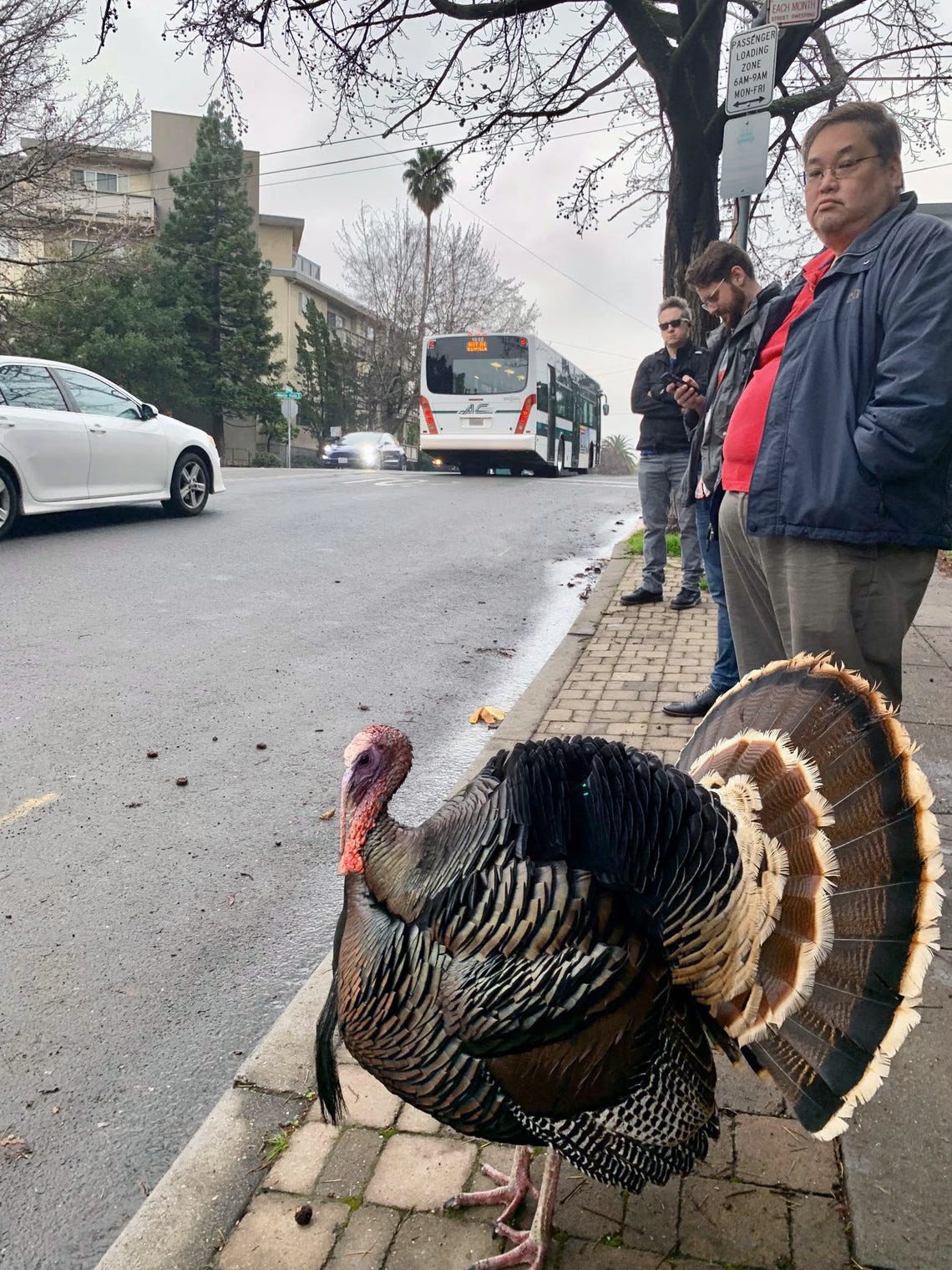
When the pandemic and stay-at-home orders changed the vibe, the turkey kept abreast. The early days of the pandemic saw humans all but vanish from the natural landscape for two glorious weeks,1 followed by a sudden influx of people desperate for fresh air and social time crowding into the rose garden.
After that, the turkey’s once-quirky outward character had turned decidedly mean.
Perhaps the aggression was always there, lurking just beneath the surface – this was a wild animal, after all – but was glossed over by an easy life in the garden. Whatever the case, now the wild turkey routinely went on the attack, striking fear in the hearts of genteel Oaklanders who, already wrung out by the angst and terror of life in the year 2020, just wanted to smell the roses.
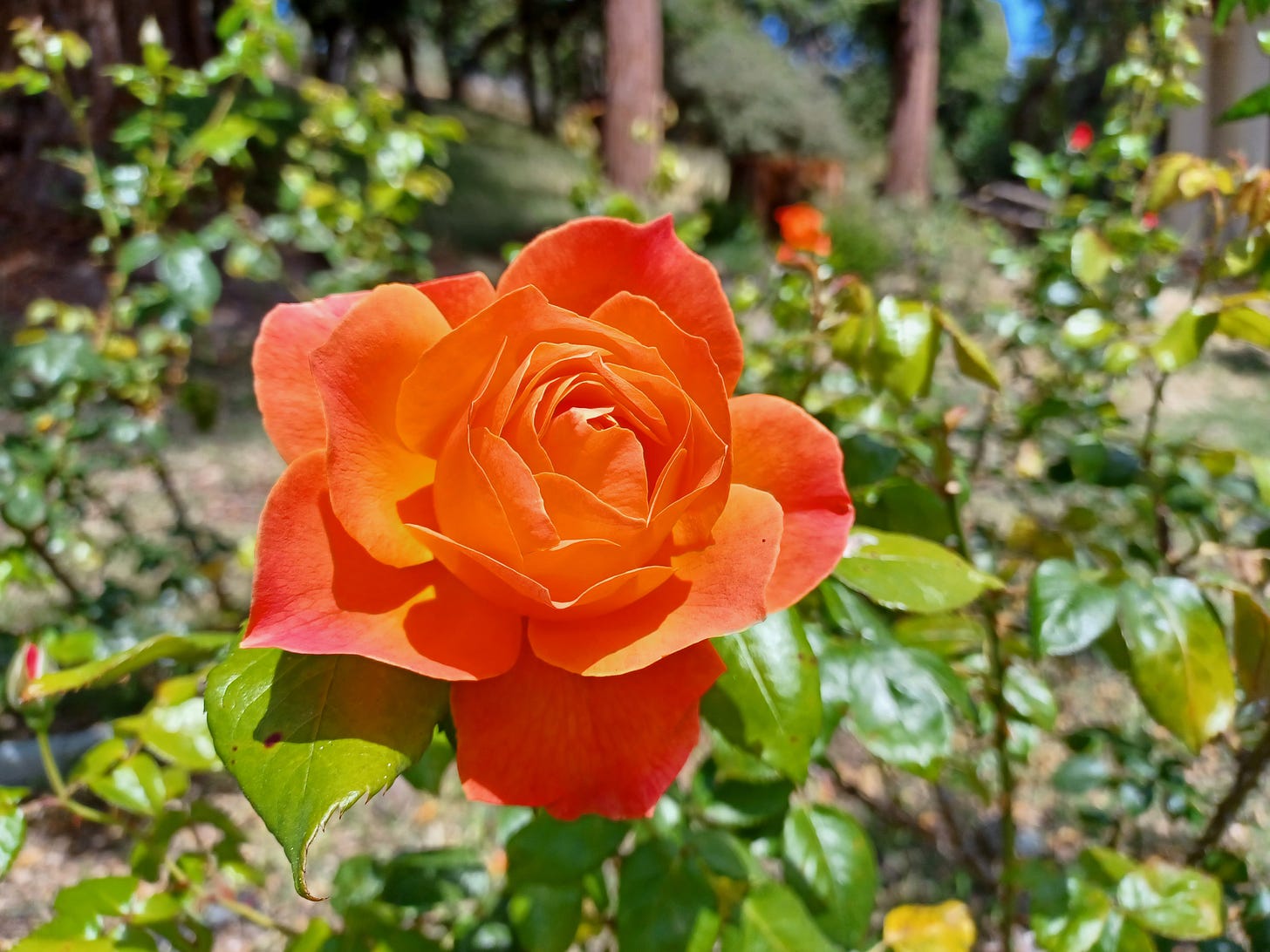
An international news article described the turkey’s physical stature in hyperbolic terms, capturing the off-the-rails tenor of the moment:
“When angry, he puffed up his chest, towering over 4ft tall. And despite his bulk, he was swift – a typical adult male turkey can weigh up to 25lbs, run at 25mph, and fly at up to 55mph. Wild turkeys have a 270-degree field of vision and can see three times more clearly than 20/20 – making it easy for Gerald to spot his victims from across the garden.”
– Kari Paul, from “‘All we could do was run’: the strange story of Gerald, the turkey who terrorized a city.”2
A city springs to action
Although this “towering” beast weighed about as much as a typical 1-year-old child or perhaps an overweight domestic cat, people were legitimately afraid. Vulnerable children and old people were among this wild turkey’s favorite targets. Several weeks of increasingly agitated complaints from nearby residents ensued. The city seemed unmoved.
Meanwhile, a social media flame war was gobbling up thousands of likes, comments and shares. Dozens of cooped-up Oaklanders had flocked to (where else?) Nextdoor to do what Oaklanders do best: squabble with each other about the turkey. Contemporaneous accounts describe a wild romp of alarmist posts, calls to action, retorts, one-upmanship and dunks.
They puffed and fluffed, charged and feinted, bobbed and weaved and roasted each other relentlessly, each refusing to cede even an inch of territory to their rivals. Soon hundreds of neighbors and amused onlookers were tapping furiously on their phones, feathers flying in every direction.
Then the city clumsily flapped into the fray, and with its characteristic ineptitude, it stirred the pot into an even more frothy frenzy. Before long, the affair had escalated into a full-fledged, citywide pecking party.
Too good a story to be contained for long, Oakland’s wild turkey fracas took flight on the internet, landing on socially-distanced dinner tables across the country and around the world.

First, the city tried closing the entire 7.5-acre rose garden to humans. This was a win-win for the city, because trimming the grass was not its strong suit anyway, and if no one could see the weeds then there would be fewer complaints.
Some observers cheered the closure on Nextdoor, arguing that as a creature of nature, the turkey should be granted squatter’s rights over the entire garden. This caused the anti-turkey camp on Nextdoor to react with a wave of outrage, mockery, and criticism.
News reports of the day described how city workers then tried to, “train the turkey to keep distance from humans.” This entailed the scientifically dubious but certifiably hilarious method of opening specially painted umbrellas in a sudden manner near the turkey in order to put the fear of humans into it.3
When that didn’t work after several attempts and untold hours of well-compensated staff time, the city gave up and sought a permit to euthanize the turkey instead. This predictably caused the pro-turkey camp on Nextdoor to react with its own wave of outrage, hurt, and dismay.
Stuck in the middle of an intense and divisive social media upheaval, the city then enlisted the aid of dozens of city staff and well-meaning volunteers to catch the bird and move it uphill a ways. But not one to be so easy a victim of displacement, and being possessed of the gift of flight, the turkey promptly returned to its home in the rose garden.
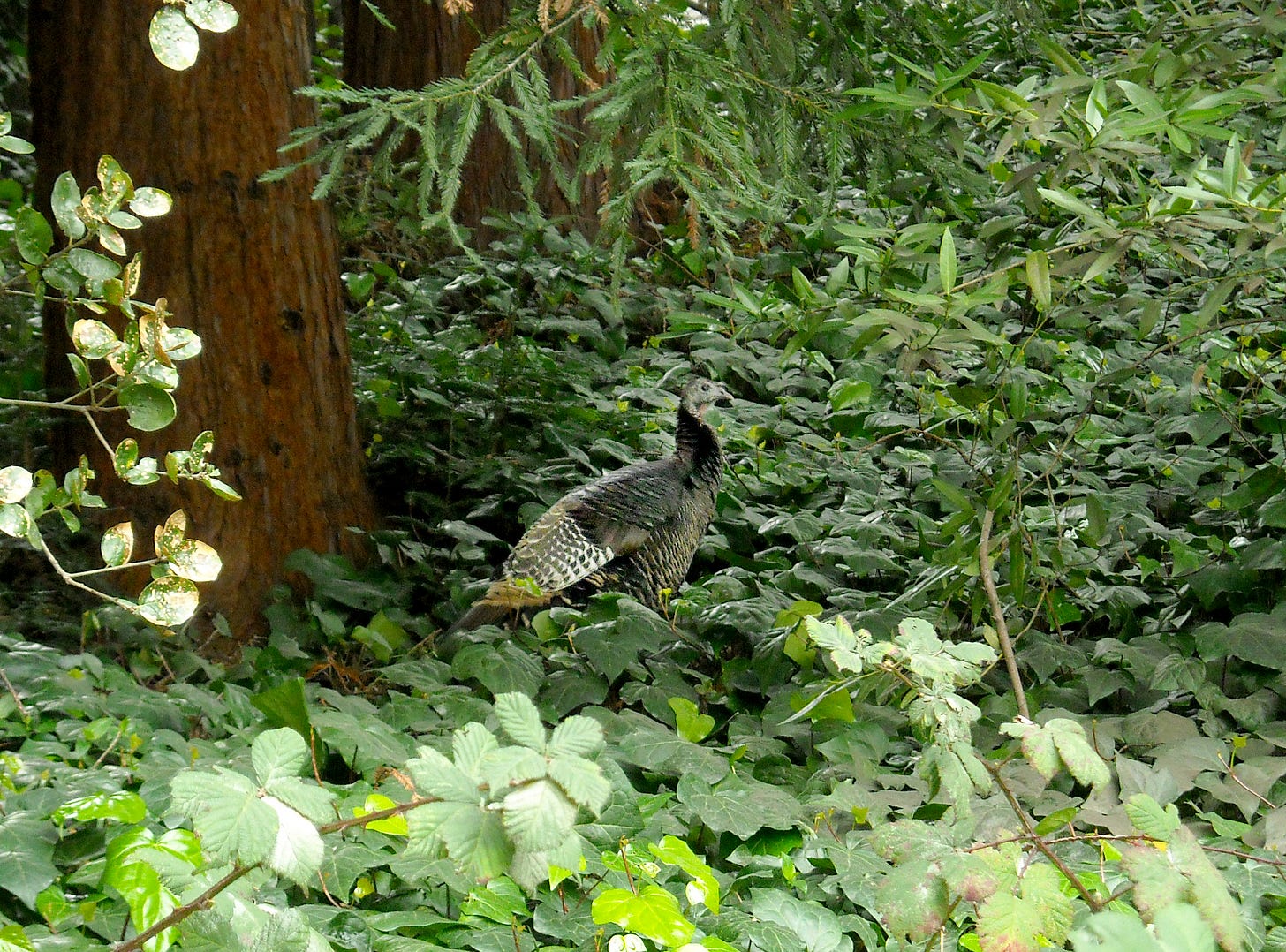
Flailing and desperate, the city brought in a hired gun: a wild turkey whisperer who disguised herself as a feeble old woman — a ripe target that quickly drew the bird’s attention and ire. When the turkey attacked, she grabbed it by the neck and stuffed it into a sack.
This was around six months after the whole affair began. Relieved, the authorities quickly made arrangements to emigrate the bird to gentler lands, and the wild, world-famous turkey of Morcom Rose Garden moved to the leafy hills of neighboring Orinda, all expenses paid.
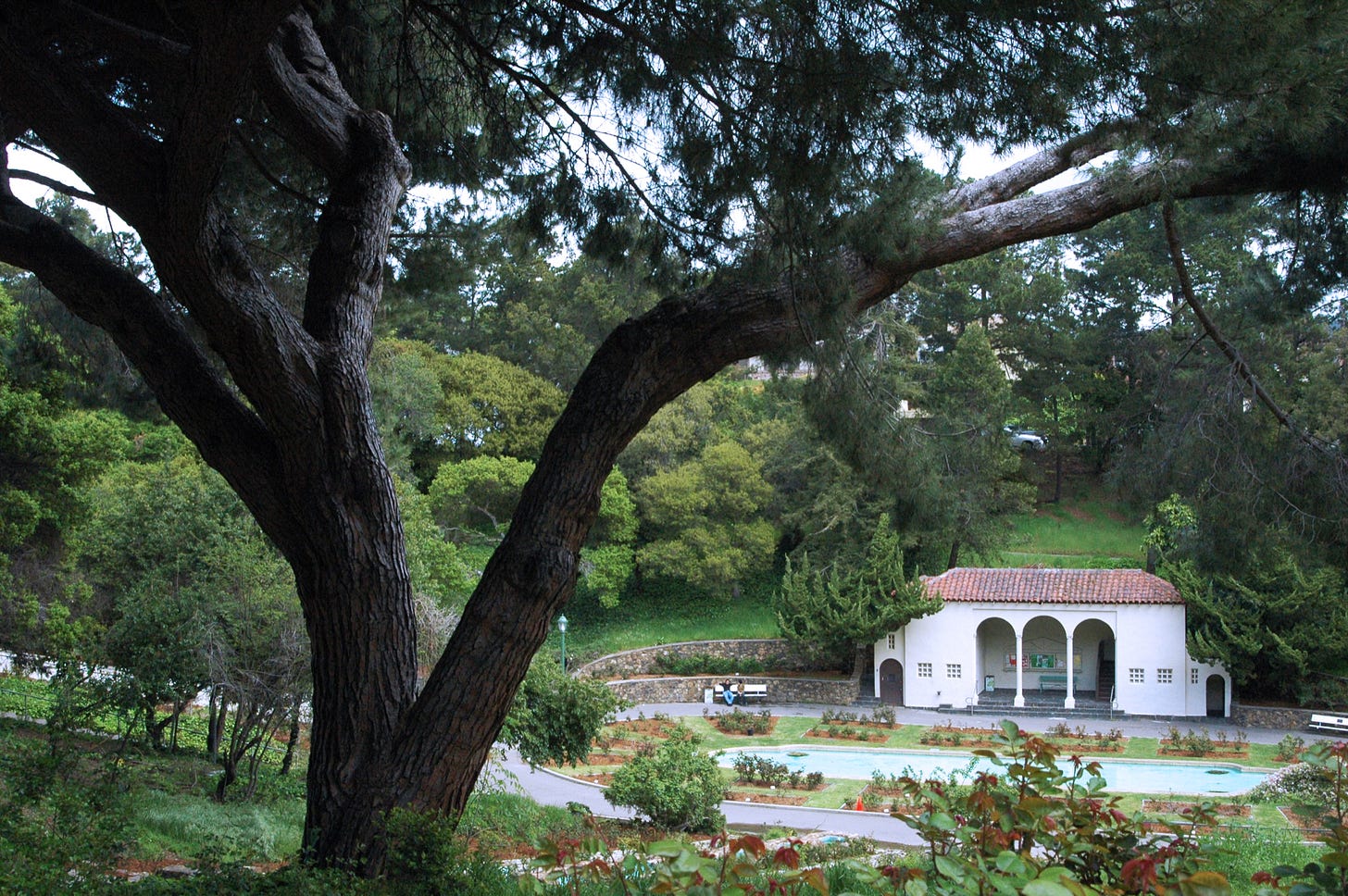
The bird next door
The enduring saga of a street-smart turkey that lost its mind during the pandemic, unleashing a tragicomic, multi-phase city and public response, before decamping for a simpler life in the hills of Orinda is a reminder of this fact: Oakland is completely insane.
It also is an uncommonly beautiful, complex, culturally rich, and endlessly entertaining city. The wild turkey of Morcom Rose Garden achieved its mythic stature by way of none other than Oakland’s timeless natural beauty, endless family bickering, ridiculously cooked government, and over-salted progressive nuttiness. And for a memorable time, Oakland was home to a humble bird that rose to global fame in a grateful world that really needed a good laugh in that particular moment.
The views expressed in Perspectives commentaries do not necessarily reflect the views of Oakland Report or its contributing authors.
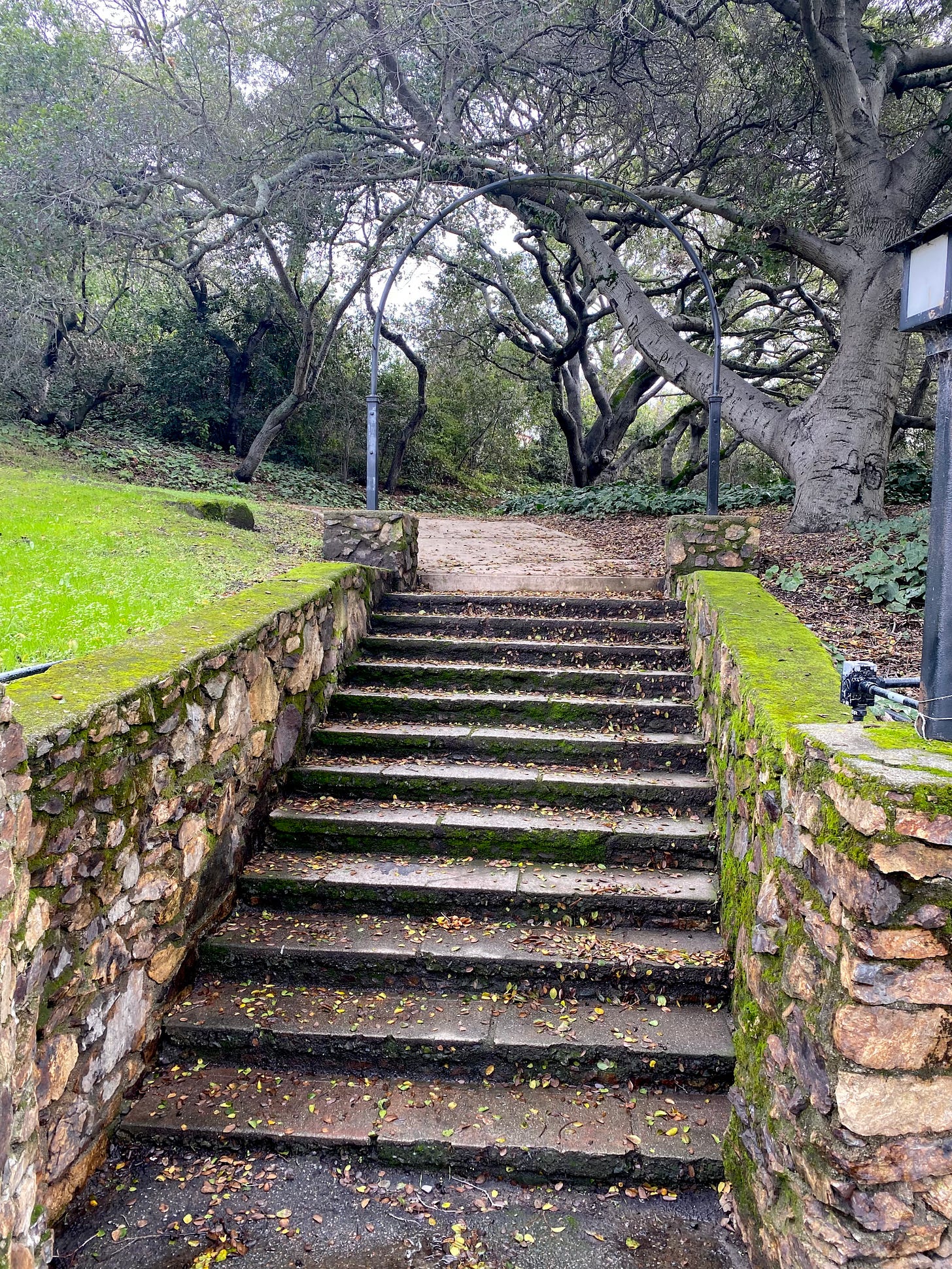
ABOUT THE AUTHOR
Sean S. Reinhart is managing editor of Oakland Report. He has 25 years of experience in local government, including 15 years in executive roles serving the cities of Hayward and Menlo Park. He spent his professional career working to improve people’s lives through civil service. Prior to his government career, he edited and published underground magazines, most notably The Free Press Death Ship and Spunk: the Journal of Spontaneous Creativity. He enjoys exploring California’s world-renowned coastline, valleys, deserts and mountains. His creative pursuits include writing, printmaking, carpentry, music and visual arts. A librarian by profession, he spends most of his days in close proximity to books.
If you like our work, please consider donating. We are a volunteer-run, 501(c)(3) charitable nonprofit organization based in beautiful Oakland, California.
Our mission is to make truth more accessible to all Oakland residents through deep investigative reporting and evidence-based analysis of local issues.
Your donation of any amount helps us continue our work to produce articles like this one.
Thank you.
Anthes, Emily. “Did Nature Heal During the Pandemic ‘Anthropause’?” New York Times, July 16, 2022; updated June 22, 2023. https://www.nytimes.com/2022/07/16/science/pandemic-nature-anthropause.html
Paul, Kari. “’All we could do was run’: the strange story of Gerald, the turkey who terrorized a city.” The Guardian, Nov. 26, 2020. https://www.theguardian.com/us-news/2020/nov/25/oakland-turkey-gerald-attack-rose-garden
Pauly, Madison. “Hero and Monster of 2020: Gerald the Turkey.” Mother Jones, Dec. 22, 2020. https://www.motherjones.com/environment/2020/12/hero-and-monster-of-2020-gerald-the-turkey/



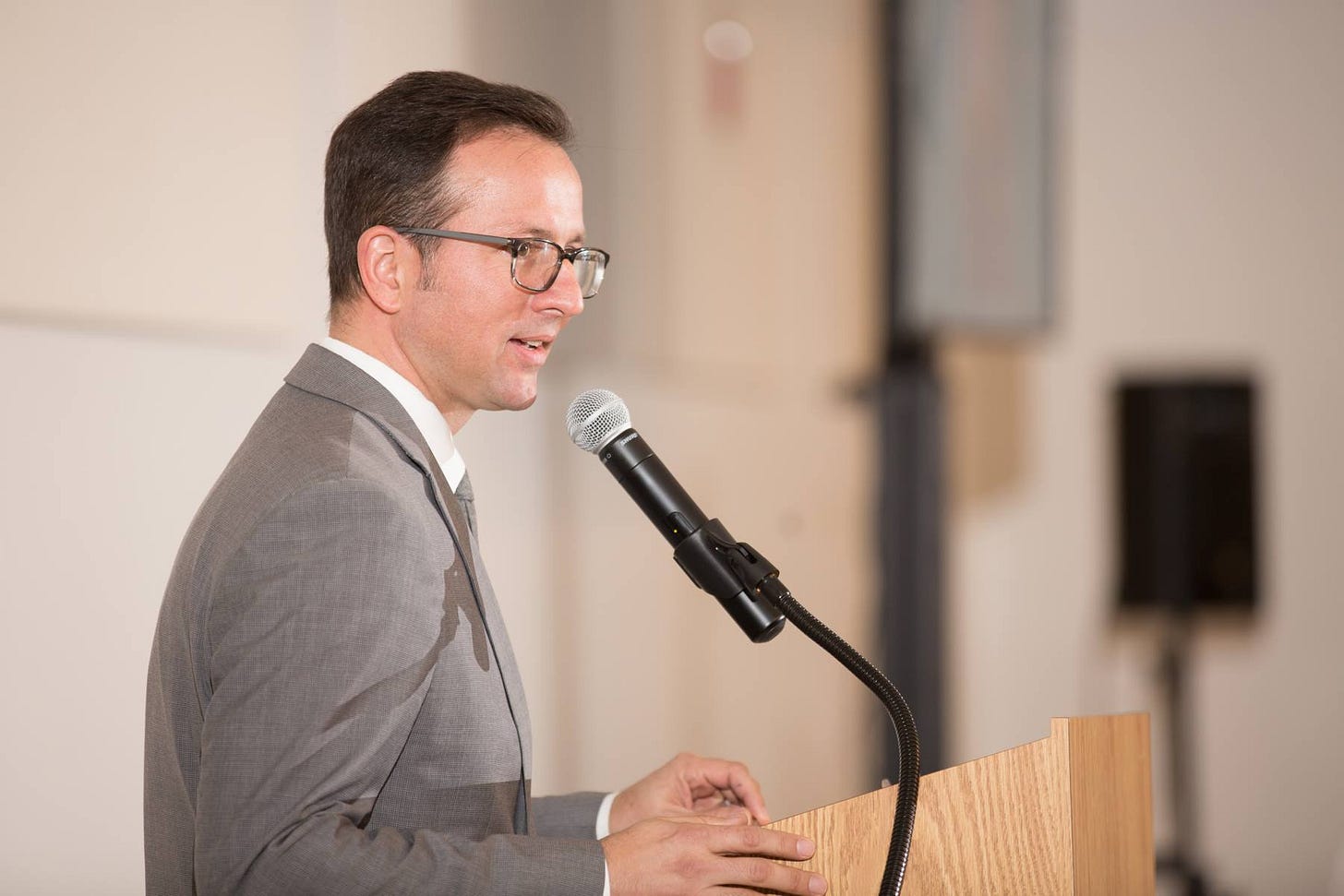
Hilarious. Thanks Sean! Happy Thanksgiving to all the strange characters in the Town.
Love!